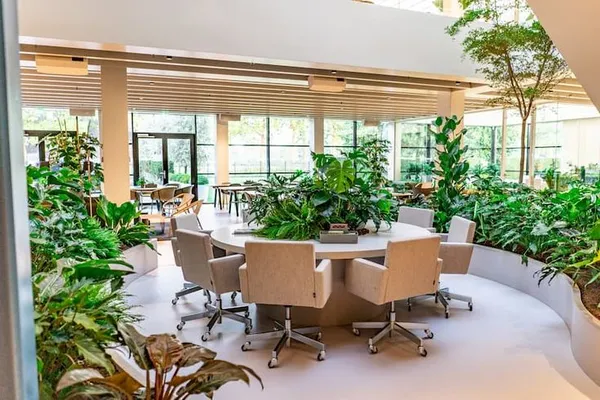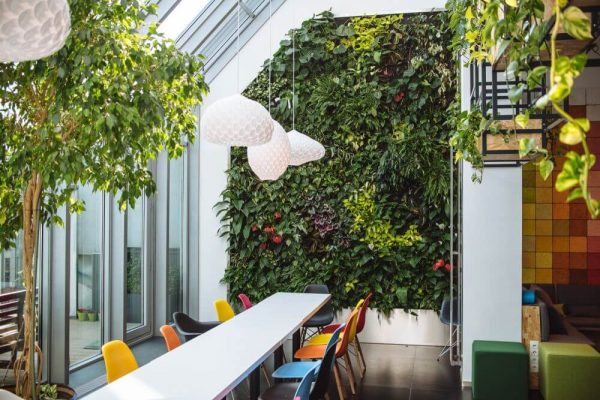Benefits Of Indoor Plants
Proven Health, Productivity and Bottom Line Boosters
Bring life into your business environment
Beauty, Enjoyment and Inspiration
Interior plantscaping can add colour, emphasise architectural features, direct traffic flow within large areas as well as moisten and freshen internal building air. A well-designed plantscape is a place where employees or patrons will enjoy spending more time and work more productively.
Improved Work Productivity
Many items in a modern office – including printers, copiers, computer screens and upholstery – release particles and contaminants that reduce air quality. Properly installed indoor plants help reduce the concentration of carbon dioxide and other potentially harmful substances such as formaldehyde and benzene – leaving the air you breathe fresher. Environments with healthy and attractive plants have been shown to reduce stress, headaches and fatigue.
A Healthier, More Comfortable Environment
Due to their size, shape and natural air-filtering functions, plants have the potential to define space, provide privacy, supply shade, control glare, block wind, improve air-conditioners, absorb sound, and curtail corrosion. Perhaps most importantly, plants absorb noxious gases, act as receptors for dirt particles, and cleanse the air of impurities while consuming carbon dioxide and releasing oxygen.



Return On Your Investment With Indoor Plants
Research shows that an adequate installation of indoor plants can deliver bottom-line benefits and a solid return on investment. Interior plants can reduce airborne moulds in sealed office environments by as much as 50%*, significantly lower workplace stress, decrease fatigue, and enhance productivity by as much as 12%*. The proper selection and placement of plants can also lower heating and cooling costs by as much as 20%*.
For more information > Plant resources.
*Research studies quoted on this page are sourced from information article “Feeling at Home in the Workplace: The Advantages of Plants in the Office”
– an initiative supported by the European Union.


